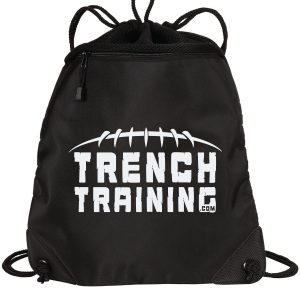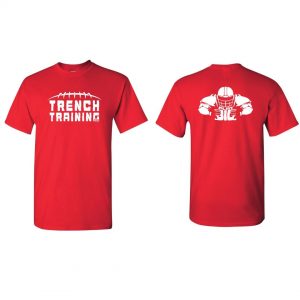
New Year’s Resolutions… Will You Persevere?
Perseverance was the word of the day we used this past week in our trench training session.
This was a powerful word that I had not thought of for a while and I found that it has everything to do with our tradition of starting New Year’s resolutions.
We need to learn to persevere through the tough times and raise our standards to achieve success.
95% of people will not follow through and complete their resolutions and will quit trying by the 15th of January.
This is only 15 days after setting these goals.
Why is this?
A video I watched recently from Tony Robbins answered this question. Here’s what I go from that video.
Statistics show that 95% of people who make a resolution have already stopped their resolution by January 15th.
I think this is very important because I know I have made probably 35 resolutions and I do not actually believe I have ever kept to one.
This really ticks me off to be honest.
I look at it as wasted goals and wasted time.
However what Tony says makes absolute sense to me!!
We have to raise our standards.
We have to change our Shoulds to Musts!
He tells us we cannot change who we are if we do not raise these standards that were given us and that we accepted many years ago.
“We live who we believe we are!”
If we truly believe we are an athlete then we will work, walk and talk like an athlete.
If we truly believe we are a singer then we will sing at the top of our lungs every chance we get.
If we believe we are no good then every opportunity for us to make an excuse or put ourself down we will take advantage of this.
To truly make a resolution to change we need to raise our standards so that Shoulds become Musts.
How in the heck do we do this?
Is it simple?
The answer is YES.
Is it easy?
That answer is… it depends.
It depends on how committed you are to changing a should into a must.
Lasting change is different than a goal.
You don’t always get your goals but you will always get your musts.
When you decide something is a must you will make a real resolution to raise your standard.
Whats a must?
Maybe you should stop eating sugar.
You would reduce it for a while and then you would go back.
But for some reason something clicked and we stopped doing it.
Maybe it was a life change (sickness, saw a video, watched a friend die etc.)
Then it became a must.
Once we get this must, then we change our life.
There are 3 things to do to raise your standard.
4 Steps for Changing a Should to a Must
Step #1: Have a vision.
Make a vision that is compelling for instance something like this…
You can’t just tell yourself, “I want to lose 10 lb.”
Be specific
What do you look like when you reach your goal weight?
How do you feel?
How do other people see you?
See it like it has already happened.
Step #2: Make it compelling.
Your Must has to be compelling.
Your reason for this change has to be strong enough to get you through the toughest of days.
This is critical.
Let’s take our example of losing weight.
Losing weight is many times not compelling enough for us to consider it a Must.
You still make it through your days being heavy,
You may not feel as good as you like be you find ways to adapt to it.
You buy bigger clothes to cover it up, you avoid going out, you poke fun at yourself to seem okay with it around friends.
So how do you make this a compelling reason?
You have to raise your standard to not be as heavy as you are.
You raise your standard to be healthy, to get strong, to live longer, and to feel better.
You have to change the way you think.
Stop wishing and start doing.
Step #3: Review it every day.
This is as critical as the first two steps.
It has to be something that you visit every single day.
Write it down, put it somewhere you will see it every day.
You need to keep your focus on the vision of who or what you are going to be!
By doing this daily you are changing those standards that you were given or accepted when you were younger.
Step 4: Monitor your progress.
 You need to know you feel you are making progress.
You need to know you feel you are making progress.
What is progress?
Progress is competing with yourself and yourself alone.
This is really important because when you compare yourself to others you put the focus on the wrong person.
Focus on you and your progress.
We need to feel we are making daily progress.
Sometimes it will be very small progress.
As long as we continue to move in the right direction your Must will become reality.
Here is an example I have had to deal with recently.
While lifting weights or trying to lose weight I would get very frustrated.
When I would watch others gain more than me in strength and lose more weight quicker than I was, it drove me nuts.
So I would go very strong for a few weeks or even a couple months but then I would ultimately quit.
I was trying for the should.
I should be in better shape.
I should lose some weight.
But a couple years ago I decided I must change my health so that I can live longer to enjoy my two daughters.
I decided it was a must for me to keep with an exercise program.
If I was to focus on the progress I am making I will feel happier about where I am at.
I am not where I want to be but when I look at where I was even 6 months ago and see the progress, I feel better right away.
My must is being accomplished one day at a time!
We need to change the standard we have learned to accept from our past.
Here is a good example of a standard or a learned behavior set in youth.
An elephant is tied to a large pole in the ground with a very heavy rope.
The elephant fights the rope and pole over and over but cannot set itself free.
This happens when the elephant is young.
After a while the elephant no longer fights to get free.
When they are going around to shows and they use very small stake and rope.
The elephant’s standard was set as a young elephant so they don’t fight the rope or stake.
Obviously the full grown elephant could very easily yank the stake out of the ground and run be it does not because of the standard that he or she has accepted as reality.
Some of the learned behaviors we have from our youth are good.
But if you have a learned behavior that keeps you from reaching your goals then make the change.
If you are going to have lasting change you will raise your standards.
Make today the day you raise your standards.
Be the person that you truly want to be by raising the standards to that of a successful you in exactly what it is you want to be!
Have a great day and remember to always Play Big.










